ISTANBUL, TURKEY (LC)
This weekend Turkish authorities fired nearly 4,000 public employees from several ministries and judicial bodies, and 45 civil society groups and health clinics were shut down, according to twin executive decrees signed by President Recep Tayyip Erdogan. This brings the total to an estimated 140,000 people that have been purged from state and private sectors since the failed coup last July.
The decrees also ordered the shutdown of one newspaper and one magazine, and have even banned dating shows. Article 60 of the new regulations published in Turkey’s Official Gazette stated, “In the radio and television broadcasting services, the sale, marketing and/or advertisement of any product, including any supplements and similar supporting products, which are introduced and/or collected by persons for the purpose of finding a friend, Chat, friendship, and the search for spouses and services cannot be permitted.”
Turkish citizens also awoke this weekend to find they no longer had access to Wikipedia.
Subject to censorship or eavesdropping by a government? OPEN your Internet! CNS VPN https://t.co/RtU5INx7h9 #privacy #Turkey #wikipedia pic.twitter.com/0WbTcbV7J7
— CNS (@CNStradenetwork) April 30, 2017
This weekend’s purge follows the President’s directive Wednesday for police to arrest more than 1,000 police force members, and to suspended a further 9,000 accused of having ties to US-based cleric Fethullah Gülen. The operation was performed in all 81 of Turkey’s provinces, and was aimed at scouring “Gülenists” from the police force. Gülen has been accused by the government of masterminding the July coup.
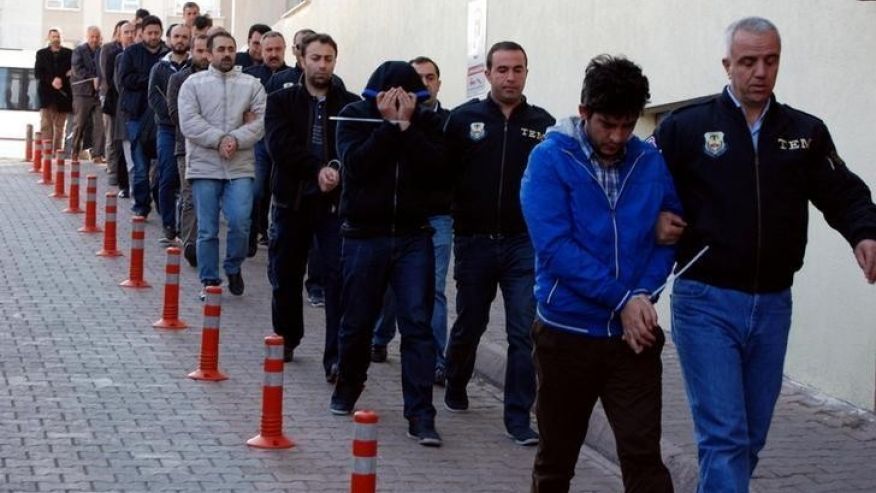
On Wednesday, Turkish courts also refused to hear an opposition case on the legality of the April 16 referendum. These developments have further entrenched the power of President Erdogan and his ruling Justice and Development Party (AKP).
The opposition’s case, brought by the Republican People’s Party (CHP), focused on the decision of Turkey’s High Electoral Board (YSK) to change the rules on the day of the referendum. The YSK had decided, while votes were being cast, to count unsealed paper ballots that had not been given an official stamp.
“The rule of the match cannot be changed while the match is being played, which is a universal rule,” said Kemal Kilicdaroglu, the leader of the CHP. He went on to argue that the lack of an official stamp opened the door to fraud.
The referendum is estimated to have passed by 51.4%, or 1.25 million ballots. The Organisation for Security and Cooperation in Europe (OSCE), a leading human rights group, estimates that there were around 2.5 million unstamped ballots.
The opposition’s legal challenge won’t be getting its day in court because the Council of State, Turkey’s highest judicial body, decided the decision to change the rule was outside of its jurisdiction saying that, “it was not an administrative procedure.”
Having already had their appeal rejected by the YSK, the CHP is now turning outside of the country for support. It announced on April 26 that an appeal would be brought before the European Court of Human Rights, a court with the support of 47 signatory countries. A negative response to the April 16 referendum has transcended party lines in Europe and the Council of Europe, co-founded by Winston Churchill in 1949, has voted to re-implement human rights monitoring of Turkey.
Who is Fethullah Gülen?
Fethullah Gülen, a 75-year old imam, went into exile from Turkey in 1999 and settled in Saylorsburg, Pennsylvania. There are an estimated 3 million to 6 million Gülen followers, or “Gülenists,” who regard the imam as a champion of interfaith dialogue. Based on American court records, institutions “inspired” by Gülen have a value between $20 billion and $50 billion, as reported in the City Journal. A large share of the institutions associated with Gülen are educational, and schools “inspired” by the imam are present on every continent.
Gülen flatly denies any involvement in the July coup, and the U.S. has rejected requests for his extradition to Turkey.
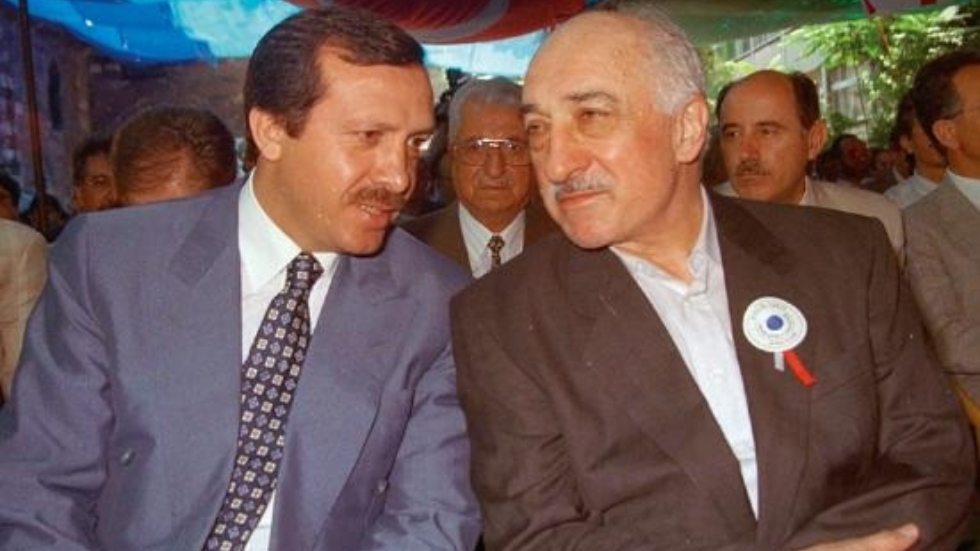
Gülen has been a major figure in Turkish politics for three decades, and he and Erdogan used to work toward a shared vision of Turkey. In the 1990s, followers of Gülen were making progress in permeating the bureaucracy of Turkey. So much so that the government of Turkey moved to purge his followers from the state, and brought charges against the cleric in 1999 for anti-secular activity, against what was a secular state.
Gülen had long preached a non-political form of Islamism, encouraging his followers to seek to educate and advance themselves socially, rather than push for radical change. However, with the rise of Erdogan and the AKP, Islamists in the country gained a electoral option. In 2002, the AKP became a major party, but was confronted with a ‘deep state’ of unelected officials that remained from the years of secular rule. So it was with Gülen’s support that the AKP asserted its authority.
For example, the Ergenekon scandal which started in 2008 was a series of trials against an alleged secularist plot that saw 275 accused, including military officers, journalists and opposition lawmakers. One of the journalists that was arrested had been writing a book critical of Gülen, “The Imam’s Army.” The government banned possession of the unpublished book.
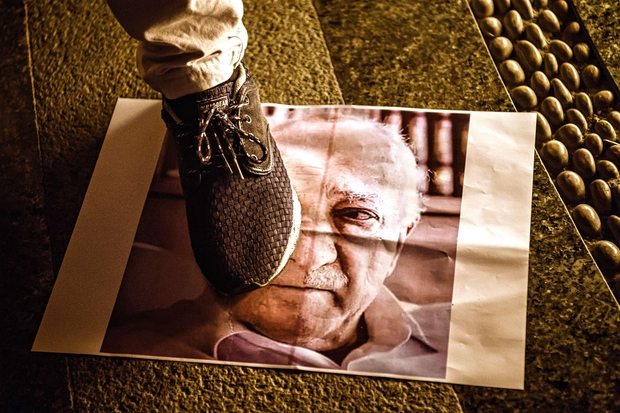
This rift deepened substantially when members of the military launched a coup attempt on the evening of July 15, 2016. Bridges over the Bosphorus strait near Istanbul were seized, and a faction within the military used a state broadcaster to announce their intention to dispose Erdogan to “protect democracy.” Over the evening, attempts were made to seize major government buildings. By the next morning, soldiers were starting to surrender. They had counted on popular support, both in the civilian population and the military, but were only able to muster 8,500 members of the military (3%) and the major opposition parties quickly denounced the coup.
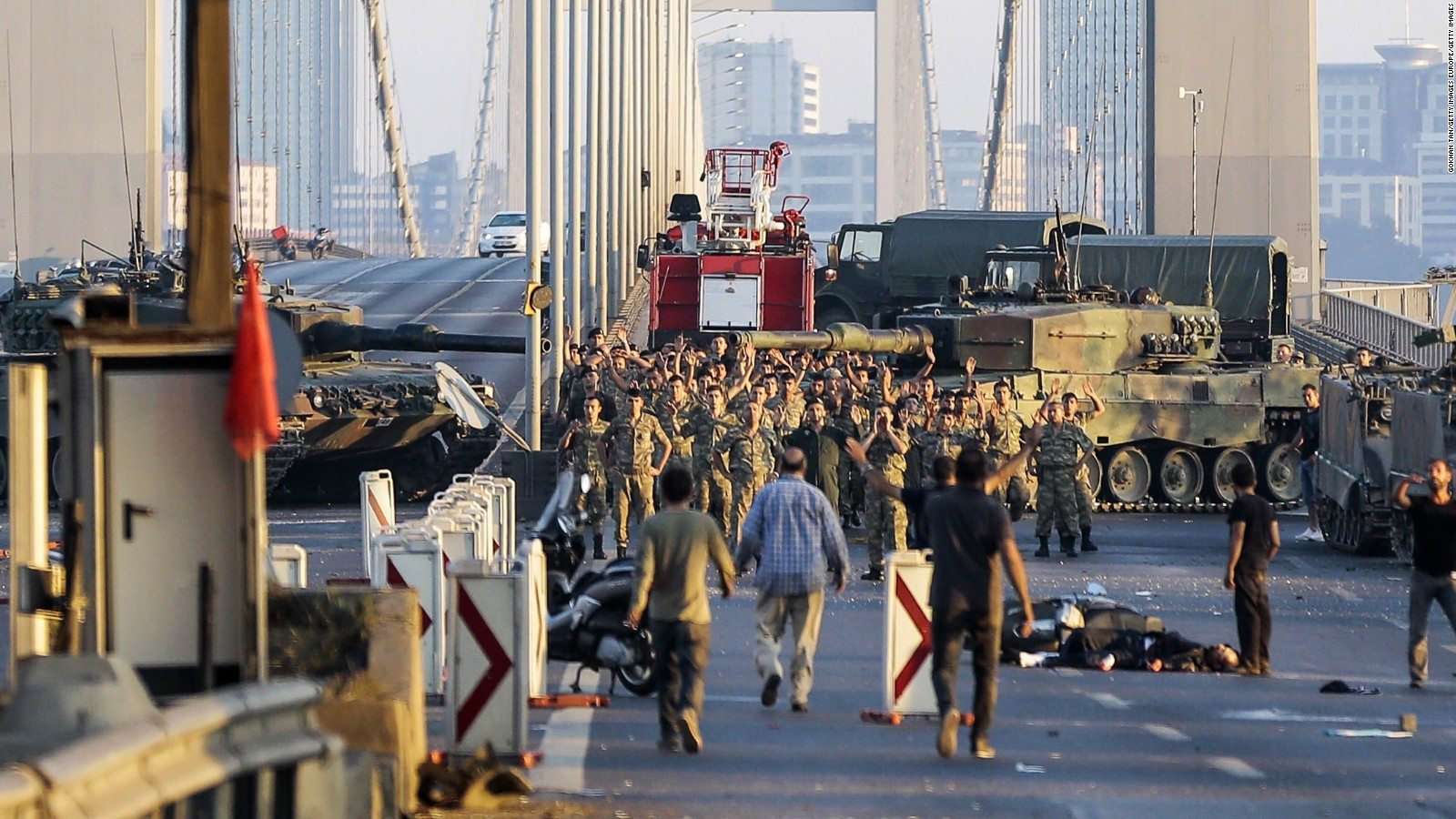
This most recent wave of arrests brings the number of detentions since the coup to 47,000. In addition to the arrests, around 120,000 people who have been fired or suspended because of alleged links to the coup; these removals come from a wide range of professions, such as soldiers, police, teachers, and public servants.
Footage from street fighting during the coup (EDITED):
https://www.youtube.com/watch?v=NwPzrK0AwW0
+++END
LIMA CHARLIE NEWS, NEW YORK BUREAU
1533 ZULU+5 APR 30 2017
(CNN, AL JAZEERA, CITY JOURNAL, BBC AND THE NEW YORK TIMES CONTRIBUTED INFORMATION TO THIS REPORT)
[Image: AP, POLICE STANDING GUARD FOLLOWING NIGHTCLUB ATTACK]
Lima Charlie provides global news, insight & analysis by military veterans and service members Worldwide.
For up-to-date news, please follow us on twitter at @LimaCharlieNews
In case you missed it:

![Image Erdogan's purge continues, Turkey sacks and detains thousands, targets media [Lima Charlie News]](https://limacharlienews.com/wp-content/uploads/2017/04/Erdogan-8347.jpg)

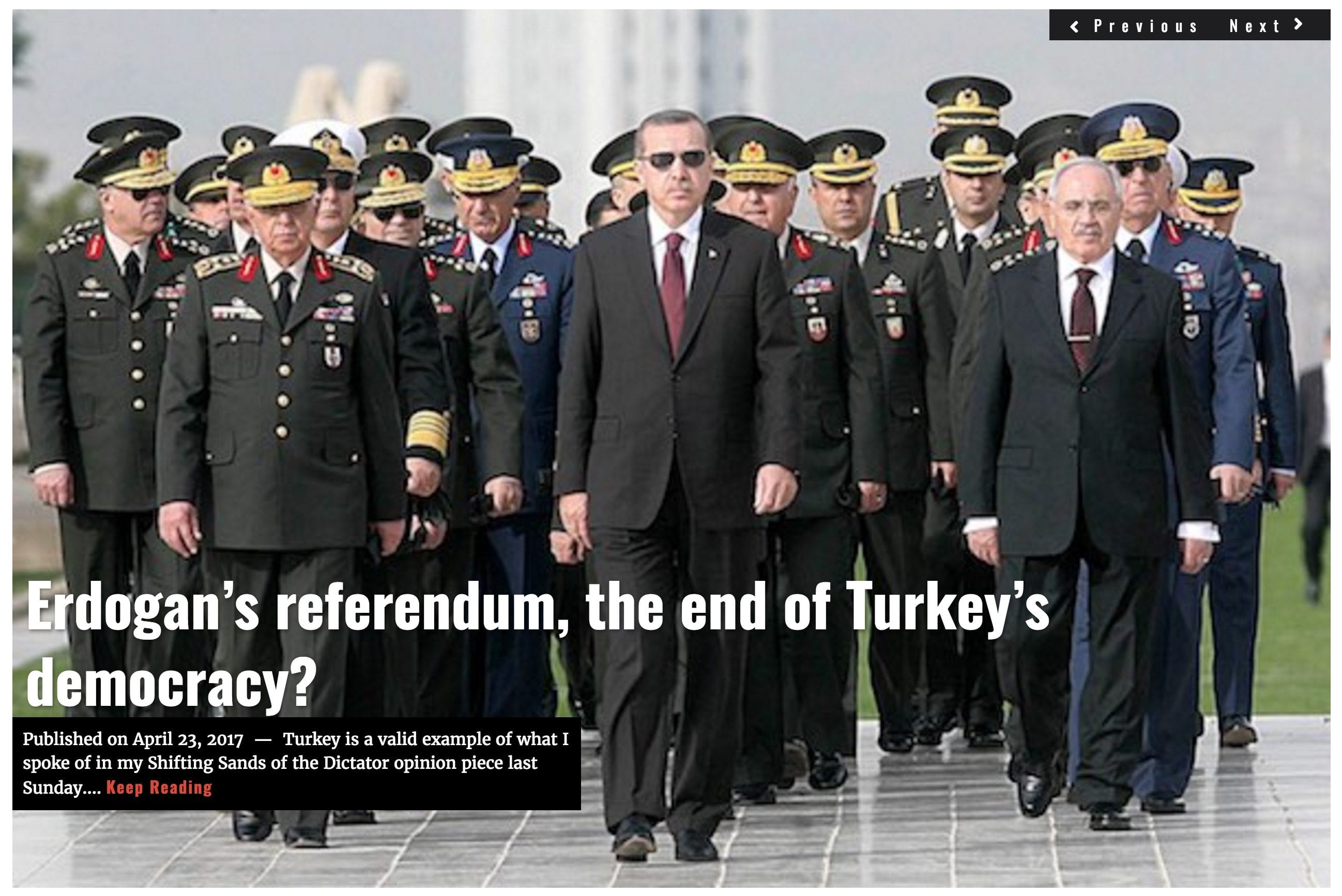

![Image The Alevis Dilemma [Lima Charlie News]](https://limacharlienews.com/wp-content/uploads/2019/04/Alevis-Erdogan-480x384.png)
![Image Arabs and Kurds - Why can’t they just get along? [Lima Charlie News]](https://limacharlienews.com/wp-content/uploads/2019/01/Arabs-and-Kurds-Why-can’t-they-just-get-along-480x384.png)




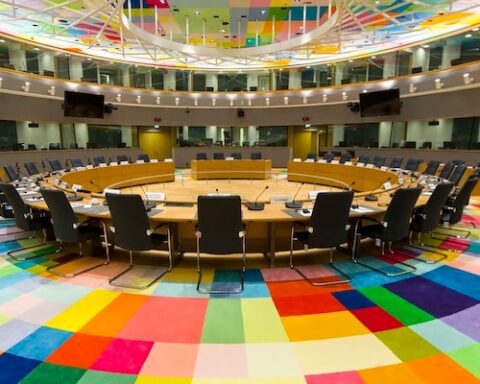

![Image The Alevis Dilemma [Lima Charlie News]](https://limacharlienews.com/wp-content/uploads/2019/04/Alevis-Erdogan-150x100.png)